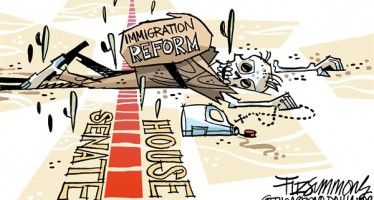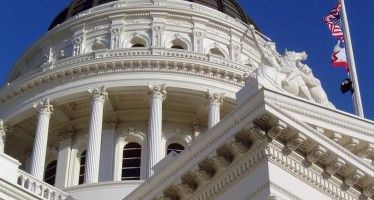Pot initiatives join forces
 Skittish at the thought of divided loyalties leading rival pot initiatives to defeat, two major marijuana legalization groups united behind the well-funded effort associated with Silicon Valley heavyweight Sean Parker.
Skittish at the thought of divided loyalties leading rival pot initiatives to defeat, two major marijuana legalization groups united behind the well-funded effort associated with Silicon Valley heavyweight Sean Parker.
Concentrated support
His initiative, which counts Lt. Gov. Gavin Newsom among its supporters, brought on the Coalition for Cannabis Policy Reform. “Coalition board member Antonio Gonzalez, who is also president of the Latino Voters League, said the coalition withdrew its rival initiative after Parker’s measure was modified to protect children, workers and small businesses,” Reuters reported.
“In California, amendments filed this week to Parker’s proposal would allow local governments a greater say in where marijuana can be sold, toughen protections for children, including a ban on marketing to minors and explicit warning labels on marijuana products, and require safety standards and enforcement of labor laws for people who work in the industry.”
In another victory for the Newsom-Parker proposal, some of California’s so-called “legacy activists,” among California’s early major medical marijuana players, threw their support behind the effort. “The members include Richard Lee, the founder of Oaksterdam University in Oakland and proponent of 2010’s unsuccessful Proposition 19 legalization effort; Neill Franklin, executive director of Law Enforcement Against Prohibition; Stacia Cosner, deputy director for Students for Sensible Drug Policy; Nate Bradley, executive director of the California Cannabis Industry Association; and David Bronner of Dr. Bronner’s Magic Soaps, a top-selling brand of natural soaps,” noted the Sacramento Bee.
Activists have nursed concerns that big corporate interests, backed by regulators, could swoop in and squeeze them out of the medical pot industry. “[G]rowers and marketers on the pot-rich North Coast are waiting to see how much the massive regulatory structure will cost them and whether to stick instead with the prosperous but risky outlaw status they have lived with for nearly two decades,” as the Press Democrat recently observed.
Bracing for change
The prospect of statewide legalization has also accelerated the push in some municipalities for fresh local restrictions. Input has been sought from law enforcement in states where marijuana decriminalization has already had time to take effect. After a recent visit to Colorado, where “law-enforcement groups such as the Rocky Mountain High Intensity Drug Trafficking Area continue to portray the situation in sky-is-falling terms,” officials from the City of Indio drew up an ordinance, ready for a vote in January, that would ban medical marijuana cultivation, according to Westword. “While medical marijuana has been legal in California since 1996, not every city allows cultivation and/or dispensaries that would sell it,” as the Desert Sun noted.
In fact, with a raft of new state laws aiming to bring marijuana fully within officials’ regulatory reach, the League of California Cities has set forth new guidelines for cities “within their legal rights to enact total bans on medical cannabis cultivation,” according to Cannabis Now. “Citing a 2014 case in which the California Supreme Court upheld a decision to permit local cities and counties to ban personal cultivation, Maral v. Live Oak, the organization reiterates that these bans can prevent the cultivation of small amounts of medical marijuana for personal use by qualified patients.”
At the same time, officials have begun eyeing new technology that would enable law enforcement to crack down on impaired driving. In conjunction with UC Berkeley researchers, Oakland outfit Hound Labs has begun work on a breathalyzer that detects marijuana, according to Inquisitr. “Initially the new handheld marijuana breathalyzer device will be tested by law enforcement agencies in the San Francisco Bay area and Lynn says depending on the results, will eventually be used across the country,” the site noted.
Related Articles
Partisan bi-partisanship?
So it looks like the state Assembly Rules Committee has delayed its hearing on Abel Maldonado‘s nomination to be lieutenant
Immigration reform in 2014? Not so fast
One of the most poignant, and frequently discussed, political narratives to come out of Washington in the last year has
Legislators, governor to get 4 percent raise
A state panel approved a 4 percent increase in pay for legislators and statewide elected officers on Wednesday. The average legislator’s




